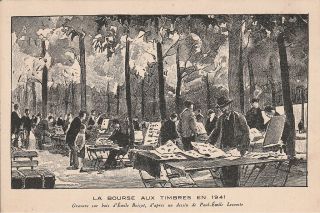Happiness
From Pleasure Junkies to Cultural Connoisseurs
How the process of collecting counterbalances hedonic pleasure.
Posted January 19, 2024 Reviewed by Ray Parker
Key points
- Hedonic and eudaimonic happiness are two distinct yet crucial perspectives on human well-being.
- Hedonic seeks immediate gratification and sensory pleasure.
- Eudaimonic transcends mere pleasure-seeking; it contributes to personal growth and a sense of purpose.
- While seeking pleasure is natural, activities like art collecting fosters long-term well-being.
Hedonic and eudaimonic happiness represent two distinct yet interconnected facets of human well-being, offering diverse perspectives on the nature of happiness. Hedonic happiness is characterized by the pursuit of pleasure and the avoidance of pain. This concept emphasizes immediate gratification and sensory pleasure. It is often measured by the presence of positive emotions and the absence of negative ones, focusing on personal enjoyment and satisfaction.
On the other hand, eudaimonic happiness transcends mere pleasure-seeking. It is associated with living in accordance with one's true self, realizing personal potential, and engaging in meaningful activities that contribute to personal growth and a sense of purpose.
This form of happiness is not just about experiencing positive emotions but rather about the fulfillment that comes from actualizing one's virtues and talents and contributing to something greater than oneself. While hedonic happiness is often critiqued for its fleeting nature, eudaimonic happiness is regarded as more sustainable, fostering long-term well-being. Both forms, however, play crucial roles in the holistic understanding of human happiness and well-being.
Collecting Art: More Than One Pleasure

Julia F. Christenson's publication Pleasure Junkies All Around! Why it Matters and Why 'The Arts' Might Be the Answer: A Biopsychosocial Perspective offers an insightful exploration into the relationship between art collectors and the concept of happiness. Christenson suggests that art collecting can be a manifestation of hedonic pleasure.
Art's visual and aesthetic appeal, the thrill of acquiring new pieces, and the sensory enjoyment derived from engaging with art all cater to hedonic desires. This aligns with the biopsychological perspective, suggesting our brains are wired to seek experiences that trigger positive emotional responses, such as joy and satisfaction.
However, Christenson also delves into how art collecting transcends mere hedonism. For many collectors, the engagement with art is not solely about the immediate pleasure it provides. It also encompasses deeper, more eudaimonic aspects. Collectors often engage with art on an intellectual level, appreciating the work's historical, cultural, and social contexts. This intellectual engagement promotes personal growth and self-actualization, key elements of eudaimonic happiness.
Christenson also highlights that art collecting can facilitate a sense of connection and belonging through the personal relationship that collectors develop with the pieces they collect and through being part of a larger community of art enthusiasts and experts. This social aspect of art collecting contributes to the collectors' overall well-being by providing pleasure and enriching their lives with meaning and purpose.
Summary
In review, Christenson's publication illuminates how art collecting, while often driven by hedonic impulses, also deeply engages with eudaimonic aspects of happiness. It presents a nuanced view of art collecting as an activity that satisfies immediate sensory desires while simultaneously fostering long-term personal growth, intellectual engagement, and social connectivity.
The conclusion drawn is that while seeking pleasure is a natural human tendency, balancing this with deeper, more meaningful experiences provided by the process of collecting is crucial for achieving lasting well-being.
References
Christensen Julia F. 2017 Pleasure junkies all around! Why it matters and why ‘the arts’ might be the answer: a biopsychological perspective Proc. R. Soc. B.2842016283720162837http://doi.org/10.1098/rspb.2016.2837


